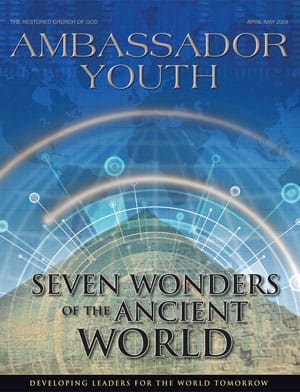The words âclassical musicâ can bring many images to mind: a conductor with unkempt, white hair wildly waving his arms before an orchestra. Stodgy, intellectual types pretentiously defending their favorite little-known composer. Or even the aged faces of famous musicians.
To others, classical music means one thing: boring!
However, this need not be. Hundreds of years after they were originally composed, these pieces remain among the most influential music of all time.
The crowning achievement of classical music is the symphony. With a little effort, this music is easy to learn to enjoy.
Famous examples of symphonies are Beethovenâs Fifth Symphony and Mozartâs 40th. While these names and numbers may not bring to mind any melodies, chances are you would know them if you heard the main themes. In fact, it is likely one or both are a ringtone on your familyâs cellphone!
Symphony derives from the Greek term symphonia, meaning âensemble, harmony or band.â The word kept this definition, with various spellings, for many years until Italian composers began to write sinfonia
introductions to operas. These overtures were the first âsymphoniesâ with different sections. Each usually had a fast tempo, followed by a slow one, and then a fast one again.
About the year 1750, composers began to write symphonies using âclassicalâ symphonic form, which included four parts:
• an opening allegro, meaning lively or cheerful.
• a slow movement.
• a minuet or scherzo
composed in 3/4 time (like a waltz).
• an allegro or rondo, or an ending with contrasting themes (for example the main theme, followed by a contrasting theme and then the main theme again).
However, musicians immediately began to play with this form. Even composers considered masters of the symphony during the Classical periodâWolfgang Amadeus Mozart, Ludwig van Beethoven and Franz Joseph Haydnâcomposed symphonic pieces that broke the mold.
Classical symphonic form does offer a working definition of the word symphony: âa musical piece, performed by an orchestra, made up of shorter, distinct and varied movements, which generally do not total more than an hour.â
Why do many still appreciate these symphonies today? The answer lies in the reason music was created.
Musicâs Effects
Music can make us cry, laugh or relieve stress after a long day. Music can lull a baby to sleep, and can bring emotion that words alone cannot express. It can even stir an army to battle.
Therapists have used music to help patients with mental illnesses, similar to David playing the harp for King Saul in I Samuel 16.
The more scientists discover about musicâs effects on the mind and body, the more they are baffled by how much it affects human beings.
Robert Zatorre, psychologist at the Montreal Neurological Institute, told the Boston Globe that music triggers the same âmotivation and reward systemâ as food, water and other major psychological drives, âsuggesting the tantalizing idea that the brain may consider music on a par with these crucial drives.â
The human mind is wired for music. While this stumps scientists, the origins of music need not remain a mystery to you. In Job 38:7, the angels sang together with joy at the creation of the earth. God created music for enjoyment.
How should the right kind of music make you feel? Again we can turn to Godâs Word for the answer. Each of the psalms that make up the book of Psalms used to be set to music. While these melodies are lost, we still have the words. Most of the psalms detail joy, wonder, appreciation and gladness, along with respect and awe toward God. These emotions are wholesome and edifying. Still, a few psalms carry themes of sadness, loneliness, distress and other âdownâ emotions. These show that music can serve as an emotional outlet when feeling grieved.
Music began with Godâa God of qualityâwho does all things âdecently and in orderâ (I Cor. 14:40). His creation exhibits this quality everywhere. This too should apply to music. It should be of high quality, the result of the composer or artist having taken time to hone his talents and carefully craft the composition.
Something to Chew On
We could view music on a par with the bodyâs need for food. Your body cannot survive on one type of food, whether hot dogs and ketchup or organic green peppers eaten raw. We need variety and balance in our diets in order to be healthy.
This same principle can be applied to what you listen toâyour musical diet. It is not âhealthyââmentally, emotionally, spirituallyâto listen to just one type of music, else you will end up being musically âmalnourished.â
While there has been worthwhile music composed over the last century, much of it falls into the âdessertâ categoryâpleasing, but lacking depth or lasting benefits. Other music is pure âjunk foodâ and should be avoided.
Symphonies represent the meat of the musical diet. They are some of the most complex and challenging works ever created. Each symphony has a lot to âchew on.â With repeated listens, you will pick up on nuances not heard before.
Most importantly, symphonies generally meetâand often exceed!âall three criteria mentioned earlier: (1) Music should be enjoyable. (2) It should be an emotional outlet
for right feelings. (3) Music should be of a high quality. This is why symphonies are an important part of a balanced musical diet.
However, as with any genre of music, there are wrong examples, some which are unlistenable. If any piece of music makes you feel unsettled, stop listening to it. However, before giving up on a classical piece, you must prosecute your thinking: Are you giving up because the piece is challenging and you want to go back to sugary pop music? Or is something truly wrong with the piece; for example, does it have screeching notes that make you cringe?
You should also apply these three criteria to any of your favorite music types.
Developing Your Tastes
It is likely you have heard bits of the symphonies mentioned before, Mozartâs 40th and Beethovenâs Fifth. These two could be a good starting point as they represent two ends of the spectrumâMozartâs 40th is playful and intricate, while Beethovenâs Fifth is stark and dramatic.
Many symphonies will conjure incredible visuals in your mind: a thunderstorm in the fourth movement of Beethovenâs 6th or a Europeanâs view of the melting pot of the United States in Antoine Dvorakâs âNew Worldâ Symphony.
To hear a piece written in the 20th century, listen to Aaron Coplandâs Symphony No. 3, which includes the Olympic theme âFanfare for the Common Man.â
However, do not stop there. Mozart alone wrote an estimated 70 symphonies! Research, discover and explore other symphonies to your liking.
The symphony is only one facet of classical music. There are also elegant sonatas and string quartets. After listening to the high quality exhibited in symphonic music, you may even rethink your other music choices.
Remember, we are musical beingsâmusic is part of us. Be sure to take in a healthy helping of this vital musical âfood groupââthe symphony!
















